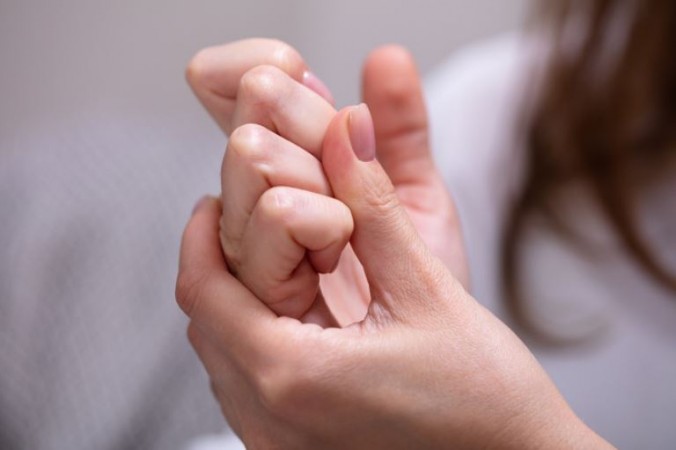
Many individuals have a habit of cracking their fingers, a behavior that can be observed multiple times throughout the day. Some people's fingers crack spontaneously. Have you ever wondered why this sound occurs and whether it is considered healthy? Some believe that excessive finger cracking may lead to arthritis. In this article, we will explore the potential drawbacks of cracking fingers and shed light on whether there is any truth to the notion that it causes arthritis.
The Mechanism of Finger Cracking:
To understand why fingers crack, it is essential to examine the underlying physiological processes. When a person cracks their fingers, they are essentially manipulating the joints in a way that prompts the release of gas within the synovial fluid found in the joints. This fluid acts as a lubricant, facilitating smooth joint movement. The audible sound produced during finger cracking is attributed to the rapid release of gas, primarily nitrogen, from the synovial fluid.
This process is not exclusive to fingers; it can occur in various joints throughout the body. When joints are manipulated, either intentionally or unintentionally, the change in pressure within the joint results in the formation and subsequent collapse of gas bubbles, leading to the characteristic popping or cracking sound.
Caution Against Excessive Cracking:
While occasional finger cracking is generally considered harmless, medical experts caution against indulging in this habit excessively. Prolonged and frequent finger cracking may have repercussions on hand health. One aspect to consider is the impact on grip strength. Grip strength is crucial for various daily activities, and any compromise in this regard could affect overall hand function.
Moreover, excessive cracking may lead to swelling in the hands. The repeated manipulation of joints can cause irritation and inflammation, potentially resulting in discomfort and reduced joint flexibility. It is, therefore, advisable to be mindful of the frequency and intensity of finger cracking to maintain optimal hand health.
Is Finger Cracking Linked to Arthritis?
A widely held belief is that habitual finger cracking may contribute to the development of arthritis. Arthritis is a condition characterized by inflammation of the joints, often accompanied by pain and stiffness. However, research suggests that there is no substantial evidence supporting a direct link between finger cracking and arthritis.
Several studies have explored this connection, and the consensus is that the act of cracking fingers does not increase the risk of developing arthritis. Arthritis is a multifaceted condition with various contributing factors, including genetic predisposition, age, and lifestyle. While finger cracking does produce sounds and may cause momentary discomfort for some, it is not a causative factor in the development of arthritis.
Repetitive Joint Sounds: When to Seek Medical Advice:
While the occasional popping or cracking of joints is generally considered normal, persistent joint sounds, especially when accompanied by pain, may indicate an underlying issue. If an individual consistently experiences joint sounds without deliberately cracking their fingers and this is coupled with discomfort or pain, it is advisable to seek medical advice.
Such symptoms may be indicative of an underlying joint problem or instability. Ignoring persistent joint sounds, particularly when associated with pain, could lead to complications if there is an underlying health issue. Therefore, consulting with a healthcare professional, preferably a specialist in bone health, is recommended to evaluate and address any potential concerns.
In conclusion, the habit of cracking fingers is a common behavior that, in moderation, is generally harmless. The mechanism behind finger cracking involves the release of gas within the joints, resulting in the characteristic sound. While caution is advised against excessive cracking due to potential impacts on grip strength and hand health, there is no conclusive evidence linking finger cracking to the development of arthritis.
It is crucial to differentiate between harmless habits and potential health risks. If joint sounds persist and are accompanied by pain or discomfort, seeking medical advice becomes imperative. Prompt evaluation by a healthcare professional can help rule out underlying health issues and ensure the continued well-being of the joints and overall hand health.
Revitalize Your Mind and Body with Simple Three Yoga Exercises
Know The Surprising Health Benefits of Sleeping Without a Pillow